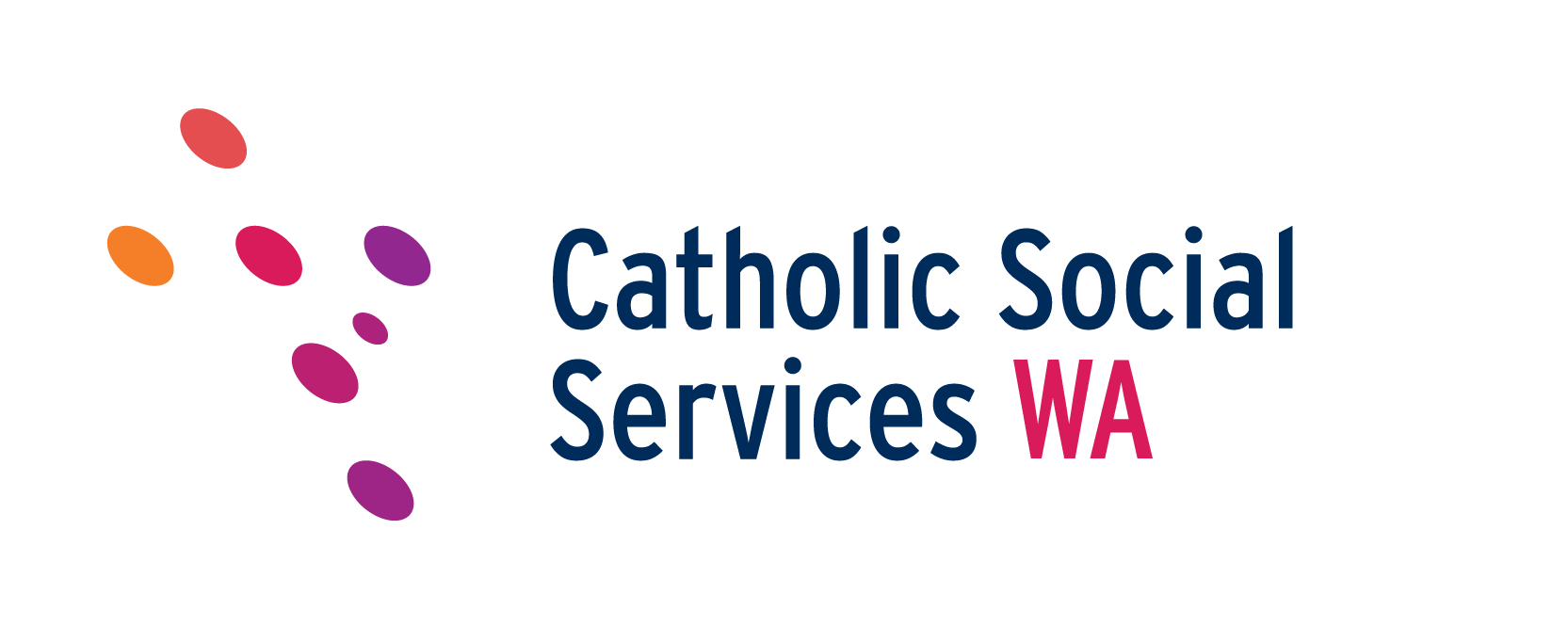- Catholic Social Services WA
- +61 8 9220 5950
- csswa@perthcatholic.org.au
Social housing with zero running costs: Is this WA’s boldest COVID-19 jobs plan?
Stephen King was running an insulation company in Perth 18 months ago when he got the call that would make him a poorer yet happier man.
The call was from single mother Jessica who, with her two boys, had just moved into their first social housing property.

Struggling through summer in the uninsulated 72-square-metre house, she rang Mr King for a quote.
“She had a fan to keep cool that wasn’t even working,” he said.
“I reckon that house would have been 50 or 60 degrees inside. I thought, how could she even sit in there?”
Mr King quoted $720 and she broke down in tears, confessing she had just $70 in the bank.
“I am a bit of a soft touch,” he said.
“We had just finished a big job in a hotel and had eight bags left over and that was how big her house was, so I told her I’d do it free.”
Since then, Mr King has shut down his business and created the Australian Insulation Foundation.
Now, $1 from every square metre of insulation sold to paying customers goes into a fund to provide insulation for social housing tenants, with 20 homes completed as of Wednesday.
It means $45,000 sitting inside Perth roofs instead of his back pocket, but Mr King says the satisfaction is better than money.

The average carbon saving per household equals about 1.8 tonnes per year and he is working on certification to produce carbon credits to sell to big polluters.
“If every social housing property in WA was insulated correctly the sector would save hundreds of millions in wasted energy costs. With solar as well they would cost zero to run,” he said.
“Why put people in social housing if it costs and arm and a leg to run the house?”
Mr King’s foundation was just one of the organisations Clean State consulted in developing its 20-part green jobs plan for Western Australia.
The plan demonstrates how the state can create 200,000 jobs and tackle both economic recovery and climate action.
Comprising research by experts from many sectors, the first part of the plan released on Wednesday proposes building 15,000 new social housing dwellings to 7.5 green-star energy ratings (most state social housing has an average 2-star performance), all with rooftop solar, over three years.
These would be built on government land along transit routes, with Clean State currently making inquiries on the location and amount of such land available.
It also proposes retrofitting a further 45,000 existing social housing dwellings with upgrades including insulation and solar power over three years.
The paper said with housing construction one of the state’s biggest employers, it was also one of the most powerful economic multipliers and an ideal stimulus lever.
This first part of the plan would not only create 63,000 jobs but house the 14,000 families currently on the social housing list, waiting an average of nearly two years, as well as some of the 9000 West Australians currently homeless.
The plan was costed at more than $4.7 billion, but said it would create $7 billion in economic benefits, with Australian Bureau of Statistics data showing every $1 in stimulus spending on residential construction generated $3 in broader economic activity.
It says the costs would be further offset, to the tune of hundreds of millions per year, by rental income, carbon credit income and savings to tenant energy bills.
Clean State will release three more key pillars of its plan (transport, energy and tourism) before the state budget, then the full plan around August.
As part of the COVID-19 state recovery advisory group, Clean State has submitted an early summary to government in the understanding more stimulus measures will be announced pre-budget.
Ms Caruso said Clean State was disappointed at the focus on the gas industry as a driver of recovery thus far, when there were increasing global examples of stimulus packages generating jobs while addressing the biggest climate, health and economic crises of our time.
“Everyone knows in their heart this is the right thing,” she said.
“They are looking to the federal government for leadership and they are not getting it; they are getting this gas-led plan from a national COVID-19 Commission stacked with gas company representatives, and everyone is scratching their heads.
“Now we are looking to the states.”
This article first appeared in WAToday
